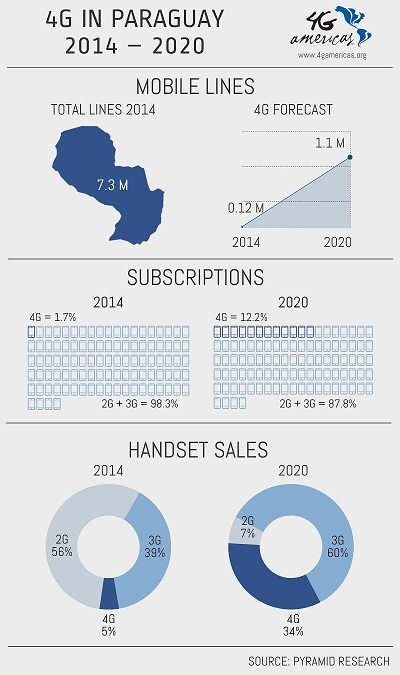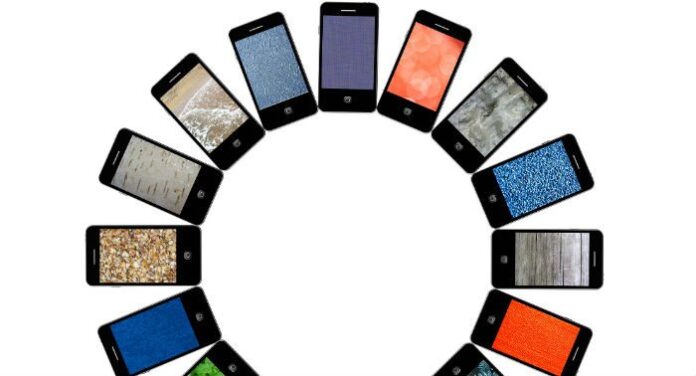Latin America is decidedly mobile-first with people younger than 35 comprising 60% of all digital users in the region. This scenario holds significant promise for the future adoption of mobile apps.
In a video interview with RCR Wireless News, Maren Lau, CMO of marketing and communications firm Internet Media Services, gave an overview of how Latin Americans use mobile apps and growth potential for that business.
Lau said Latin Americans have an average of 18 apps on their mobile phones, which is low compared to the 27 apps for North Americans. In order to raise this number, apps should be in native languages and with some sort of local content. Other key factors include increasing smartphone penetration and moving from 2G to 3G and “4G.”
LTE in Paraguay
LTE is expected to be the main access network for broadband Internet in Paraguay this year. A new analysis by 4G Americas, supplied by Pyramid Research, shows that over the next five year LTE will jump from 1.7% of the total mobile lines in 2014 to 1.12 million lines by 2020, making it the primary broadband technology. 
According to Pyramid Research, the increase of LTE adoption will be due to the growth of device sales. The consulting firm estimates that by 2020, 34% of all mobile devices will be LTE-ready, while 60% will be compatible with HSPA.
LatAm and Africa
Positivo BGH, a joint venture between Brazilian manufacturing company Positivo and the BGH Argentinean group, opened a manufacturing plant in Kigali, Rwanda. The JV is a result of a computer supply agreement focused on students in Africa. The five-year project, in partnership with the Ministry of Education of Rwanda, is expected to serve as a model for other nations on the continent.
More Latin American news:
Brazil – State-owned Telebras announced plans to invest $75.92 million (R$ 240 million) to increase its fiber optic network throughout the country. One of the investment goals is to expand Internet penetration, especially in rural areas.
Argentina – Personal has extended its 4G network to another 10 cities, totaling 18 cities covered.
Mexico – Telcel, owned by America Móvil, may be able to compete for more spectrum in the upcoming auction. The carrier was labeled as a dominant player and is still subject approval from telecom regulators.
Brazil – Mobile broadband, both 3G and 4G, grew 46% within one year, according to telecommunications association Telebrasil. In May, 3G and 4G totaled 193.6 million connections.
Chile – Next-generation services have increased the demand for postpaid lines. During the first-quarter, the number of prepaid customers dropped 2.4%, while postpaid increased 5.1%.
Brazil – Telefônica Vivo launched a seven-day package offering focused on international roaming that includes voice calls, Internet and text messages. The goal is to engage customers who used to buy local SIM cards when traveling.
Wondering what’s going on in Latin America? Why don’t you follow me on Twitter? Also check out all of RCR Wireless News’ Latin American content.

